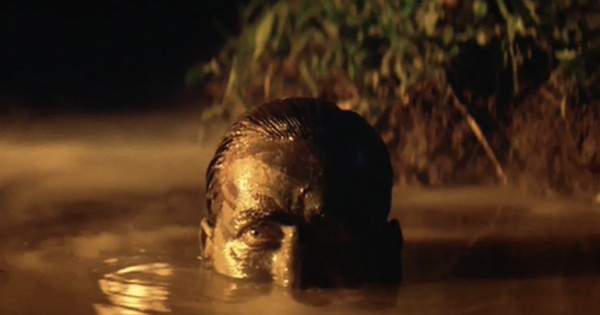

[shortcode-Op-Ed-disclosure]
Forty years ago today, Apocalypse Now was released. As they say, it was kind of a big deal at the time, and actually it still is. Unlike some other movies about Vietnam released soon after the war, Apocalypse Now still largely stands up, unlike, say, The Deer Hunter, which is damn near unwatchable today. I know. I tried. Even Christopher Walken can’t make two hours in rural Pennsylvania exciting.
Apocalypse Now might be the first example of people in the military turning a movie meant to highlight the horrors of war into a motivational video about killing the enemy.
That’s especially true about the first part of Apocalypse Now, which included probably the most intense scenes of a helicopter assault ever seen on film, before or since. The brutality inflicted upon a VC village is supposed to show how one side sees itself as heroes even as it kills both enemy and innocent alike.
For military audiences, there is nothing more badass than a helicopter-borne assault kicking the crap out of the VC while playing “Ride of the Valkyries” on loudspeakers. Well, besides surfing while under enemy fire. There’s nothing like the smell of napalm in the morning. After all, it smells like victory.
For many current military members, it seems almost an idealized view of a military that doesn’t exist anymore. Who wouldn’t want to slay Charlie with a killer soundtrack in the background? Hell, Apocalypse Now was half the reason I asked to fly helicopters in flight school. But after the viewer finds out that “Charlie don’t surf,” there’s a whole lot of horror going on in Apocalypse Now. No one really talks about anything past that point.
It’s almost as if people forget that the whole point of the movie was to point out the hypocrisy of military leadership, especially in Vietnam, but more broadly in war generally. The protagonist, Capt. Willard, is going up the river on a patrol boat to kill Col. Kurtz, a renegade officer who’s turned the Montagnards into his own private Army. Kurtz has earned his death sentence for doing what the Army wanted him to do — train the locals to kill VC. He just does it a little too well and a little outside Army regulations.
It’s well-known that Apocalypse Nowis a modern take on Conrad’s Heart of Darkness, except with a young, skinny Laurence Fishburne rocking out to the Stones instead of long discourses on the turn-of-the-century ivory trade. Supposedly, legendary Army officer David Hackworth was also an inspiration for Colonel Kurtz, though Hackworth going on the lam to be a peacenik in Australia is a far cry from being a god to primitive natives and putting heads on pikes.
As Willard and the Navy crew go upriver, they see what war does to their fellow troops and themselves. A near-riot breaks out at a USO show as soldiers rush Playmates gyrating to “Susie Q,” and the girls barely make it out. Kind of still relevant given recent revelations on military sexual assault.
More distressingly, they kill every civilian on a sampan because a woman onboard was trying to protect her puppy. Even as they’re on a mission to kill a supposed war criminal, they end up becoming war criminals themselves.
Reading veterans’ comments on a lot of articles, too many people think that type of behavior is fine, whether they think it’s effective or because it just seems badass. As it turns out, Coppola really wasn’t commenting on Vietnam in particular, but, like Heart of Darkness, on the human condition in general.
If you live in darkness, eventually the darkness becomes part of you. That’s not a good thing. Kurtz deserved to be relieved, and if he wouldn’t be relieved, then perhaps killed. For all of the tough guy nonsense you hear about needing to do evil to fight evil, it’s all B.S. Kurtz was killed because he did what his bosses wanted, just a little too well.
Even Willard became what he beheld. He was ultimately no better than his enemy, whether that enemy was the VC or Kurtz. If you’re not any better than your enemy, what’s the point of fighting, anyway? Especially 8,000 miles from home.
Apocalypse Now isn’t about Vietnam. Anyone saying “ACK-ually” about historical accuracy is missing the point. It’s about evil begetting evil. That’s a story that’s always relevant, and perhaps more so today than usual.
[shortcode-Carl-Forsling-bio]
